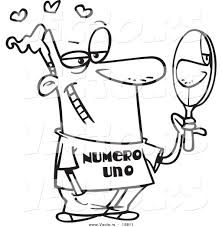中文词源
vain 徒劳的,虚无的
来自拉丁语vanus,空的,虚无的,来自PIE*wa-no,分开的,遗弃的,词源同vacate,want,wane.
英语词源
- vain
-
vain: [13] Latin vānus meant ‘empty’ (it was related to vacuus ‘empty’, source of English vacuum). It passed into English via Old French vain in the sense ‘worthless’, and the main modern meaning ‘conceited’ did not develop until the 17th century. Also from vānus come English evanescent, vanish, vanity [13], and vaunt [14], and wane, want, etc go back to the same ultimate Indo-European base.
=> evanescent, vanish, vanity, vaunt, wane, want - vain (adj.)
- c. 1300, "devoid of real value, idle, unprofitable," from Old French vain, vein "worthless, void, invalid, feeble; conceited" (12c.), from Latin vanus "empty, void," figuratively "idle, fruitless," from PIE *wa-no-, from root *eue- "to leave, abandon, give out" (cognates: Old English wanian "to lessen," wan "deficient;" Old Norse vanta "to lack;" Latin vacare "to be empty," vastus "empty, waste;" Avestan va- "lack," Persian vang "empty, poor;" Sanskrit una- "deficient," Armenian unain "empty").
Meaning "conceited, elated with a high opinion of oneself" first recorded 1690s in English; earlier "silly, idle, foolish" (late 14c.). Phrase in vain "to no effect" (c. 1300, after Latin in vanum) preserves the original sense. Related: Vainly; vainness. Compare also vainglory.
权威例句
- 1. He is still vain enough to dye his hair red.
- 他还是很虚荣,把头发染成了红褐色。
- 2. It became obvious that all her complaints were in vain.
- 很明显她所有的抱怨都是白费口舌。
- 3. I am not a vain creature.
- 我不是个爱慕虚荣的人。
- 4. She is perceived as vain, spoilt and promiscuous.
- 她被认为是个被人惯坏了的、既虚荣又淫乱的女人。
- 5. He was self-important, vain and ignorant.
- 他傲慢自负,虚荣无知。
